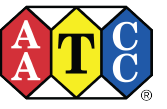By Saji George
Herbal Products
 Consumer use of herbal supplements for wellness has been increasing in recent years, according to the American Herbal Products Association (AHPA). Their website is the self-proclaimed voice of the herbal and botanical products industry, and an excellent resource for laboratories interested in providing testing services to this growing market sector. At the Supply Side West show, they held numerous committee meetings (Analytical Laboratories, Personal Care, Sports Nutrition and Cannabis to name a few) where solutions to various industry issues are discussed http://www.ahpa.org/AboutUs/Committees.aspx.
Consumer use of herbal supplements for wellness has been increasing in recent years, according to the American Herbal Products Association (AHPA). Their website is the self-proclaimed voice of the herbal and botanical products industry, and an excellent resource for laboratories interested in providing testing services to this growing market sector. At the Supply Side West show, they held numerous committee meetings (Analytical Laboratories, Personal Care, Sports Nutrition and Cannabis to name a few) where solutions to various industry issues are discussed http://www.ahpa.org/AboutUs/Committees.aspx.
The show was held this March at the Anaheim Convention Center, and I attended on behalf of Pickering Laboratories. Both the exhibit show and committee meetings were very informative. This is a good place to taste-test the concoctions that are displayed at local stores but you always hesitate to buy because the components fail to excite the imagination. Consider it the test drive of the products that are so good for you. While there, I also explored new frontiers in herbs and botanicals, and listened in on the industry’s expanding conversation on pesticides, mycotoxins and adulterant. If you are interested in more information about analytical testing in herbal matrices, please visit www.pickeringlabs.com/library/method-abstracts-2/#food to learn more.
Textiles
 The International Conference of the American Association of Textiles Chemists and Colorists (AATCC) was held at Williamsburg, Virginia in April. This show has three interest groups: chemical applications, concept-to-consumer and materials. The chemical applications group focuses on applying chemicals to textiles to add additional function (such as adding wrinkle free, anti-microbial and anti-mosquito, or flame retardant properties). Concept-to-consumer focuses on the path from design to retail (such as balancing between design and quality, using conductive thread for sewing, or digital textile printing). Finally, the materials group focuses on latest innovations in fibers (such as solar textiles, smart textiles or novel synthetic turf infill). To learn more about smart textiles, try this link http://www.rle.mit.edu/fabric/ or you could find those and other videos on YouTube.
The International Conference of the American Association of Textiles Chemists and Colorists (AATCC) was held at Williamsburg, Virginia in April. This show has three interest groups: chemical applications, concept-to-consumer and materials. The chemical applications group focuses on applying chemicals to textiles to add additional function (such as adding wrinkle free, anti-microbial and anti-mosquito, or flame retardant properties). Concept-to-consumer focuses on the path from design to retail (such as balancing between design and quality, using conductive thread for sewing, or digital textile printing). Finally, the materials group focuses on latest innovations in fibers (such as solar textiles, smart textiles or novel synthetic turf infill). To learn more about smart textiles, try this link http://www.rle.mit.edu/fabric/ or you could find those and other videos on YouTube.
So, why did Pickering Laboratories send a chemist to AATCC when we have no direct involvement in the textile industry? Our product testing solutions are used every day in testing these textile innovations! A popular artificial perspiration we offer is the AATCC Method 15 formulation, which is used for testing the colorfastness of fabric to perspiration or to a combination of light and perspiration.
For this and other formulations, visit www.pickeringtestsolutions.com and view our complete product testing catalog, or just explore the many different types of consumer products and tests that get performed everyday with artificial perspiration on products you purchase as a consumer!


